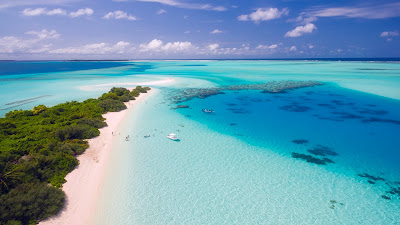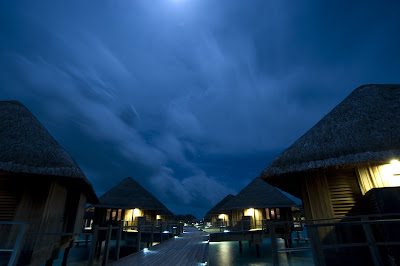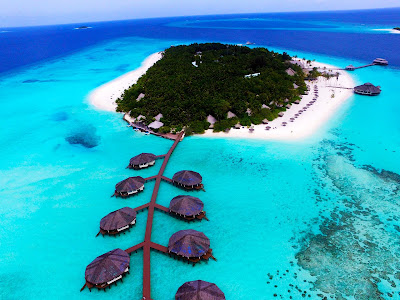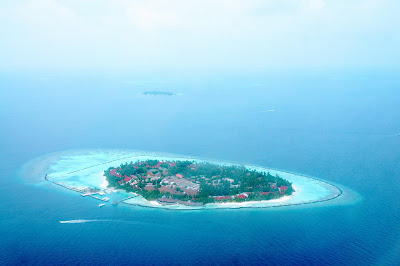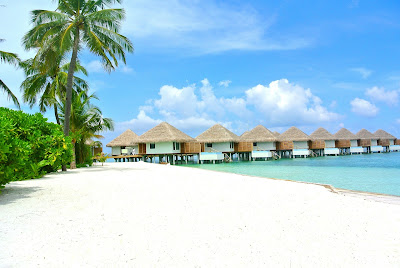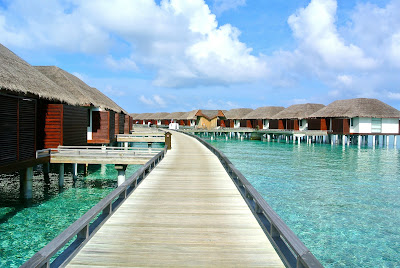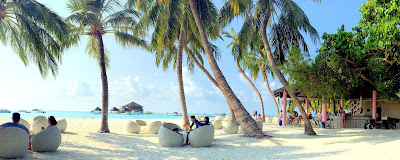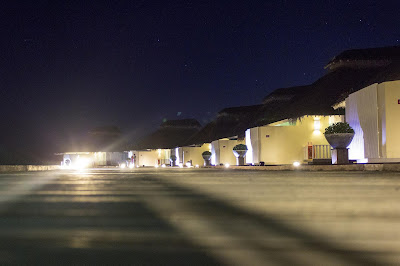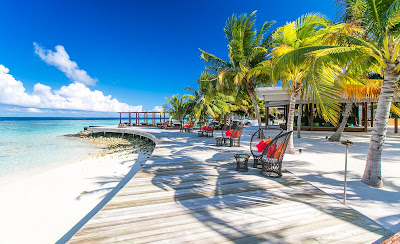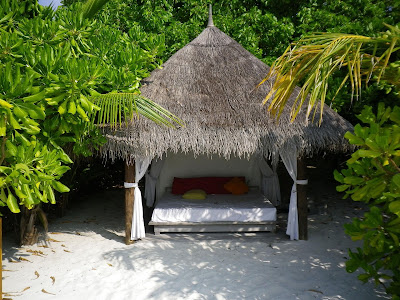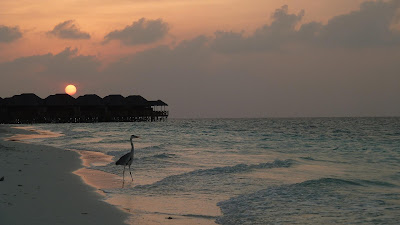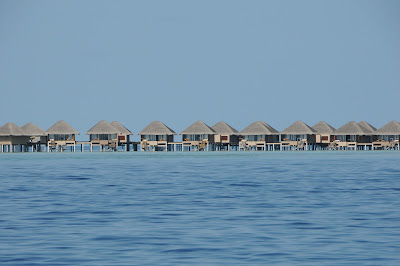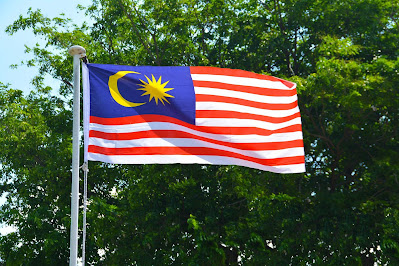All about Maldives,Maldives wallpaper, Maldives Islands, Maldives beach, Maldives paradise
Official Name: Republic of Maldives
Geography
Area: 298 sq. km. (115 sq. mi.), over 1,100 islands; twice the size of Washington, DC.
Cities: Capital--Male' (pop. 100,000).
Terrain: Flat atoll islands.
Climate: Hot and humid.
People
Nationality: Noun and adjective--Maldivian(s).
Population (2009 est.): 314,000 (plus 80,000 expatriate workers who are not counted in the census).
Population growth rate: 1.66%. Population growth rate has dropped dramatically in recent years.
Ethnic groups: Maldivians.
Religion: Sunni Islam.
Languages: Dhivehi (official); many government officials speak English.
Education: Years compulsory--7. Enrollment--primary (grades 1-7) 100%; secondary (grades 8-10) 70%. Literacy--97%. (Sources: Maldives Department of National Planning and World Bank)
Health: Infant mortality rate--24/1,000 (Source: World Bank). Life expectancy--72 years.
Resident work force: Community, social and personal services--21%; manufacturing--13%; fishing--11%; tourism--11%; transport, storage, and communication--9%; other--35%.
Government
Type: Republic.
Independence: July 26, 1965 (formerly a British protectorate).
Constitution: August 7, 2008.
Branches: Executive--president, cabinet. Legislative--unicameral Majlis (parliament). Judicial--Supreme Court, High Court, Civil Court, Criminal Court, Family and Juvenile Court, and 204 general courts.
Administrative subdivisions: 19 atolls and capital city.
Political parties: Adhaalath Party (AP), Dhivehi Raiyyethunge Party (DRP--Maldivian People’s Party), Islamic Democratic Party (IDP), Maldivian Democratic Party (MDP), Social Liberal Party (SLP), Dhivevi Quamee Party (DQP), People’s Alliance (PA), Republican Party (Jumhooree), others.
Suffrage: Universal at age 21.
Economy
GDP (2009): $1.473 billion.
GDP growth rate (2009): -3%.
Per capita GDP (2009 est.): $4,600.
Inflation, year over year (2009 est.): 4%.
Debt, external (2009 est.): $933 million.
Exchange rate (official peg): 12.8 rufiyaa (MVR) = U.S. $1.
Unemployment rate (2006 est.): 14.4%.
Current account balance (2009): -$400 million.
Percentages of GDP (2009 est.): Tourism--27%; transport and communications--20%; government--18%; manufacturing--7%; real estate--7%; fishing--3%; construction--6%; agriculture--2%; other--10%.
Trade (2009 est.): Exports--$76 million: fish products. Major markets--Thailand, Sri Lanka, U.K., France. Imports--$967 million: foodstuffs, petroleum products, transport equipment, construction equipment. Major suppliers--Singapore, U.A.E., India, Malaysia, Sri Lanka, Thailand.
PEOPLE, HISTORY, AND CULTURE
Maldives comprises 1,191 islands in the Indian Ocean. The earliest settlers were probably from southern India. Indo-European speakers followed them from Sri Lanka in the fourth and fifth centuries BC. In the 12th century AD, sailors from East Africa and Arab countries came to the islands. Today, the Maldivian ethnic identity is a blend of these cultures, reinforced by religion and language.
Originally Buddhists, Maldivians were converted to Sunni Islam in the mid-12th century. Islam is the official religion of the entire population. Close community relationships and a strict adherence to Islamic precepts have historically helped keep crime low and under control. However, a growing heroin addiction problem and the emergence of youth gangs, especially in Male, have increased the crime rate and the incidence of street violence.
The official and common language is Dhivehi, which is related to Sinhala, a language of Sri Lanka. The writing system is from right to left. English is used widely in commerce and increasingly as the medium of instruction in government schools.
Some social stratification exists on the islands. It is not rigid, since rank is based on varied factors, including occupation, wealth, perceived Islamic virtue, and family ties. Members of the social elite are concentrated in Male'.
The early history of the Maldives is obscure. According to Maldivian legend, a Sinhalese prince named KoiMale was stranded with his bride--daughter of the king of Sri Lanka--in a Maldivian lagoon and stayed on to rule as the first sultan.
Over the centuries, the islands have been visited and their development influenced by sailors from countries on the Arabian Sea and the Indian Ocean littorals. Mopla pirates from the Malabar Coast--present-day Kerala state in India--harassed the islands. In the 16th century, the Portuguese subjugated and ruled the islands for 15 years (1558-73) before being driven away by the warrior-patriot Muhammad Thakurufar Al-Azam.
Although governed as an independent Islamic sultanate for most of its history from 1153 to 1968, the Maldives was a British protectorate from 1887 until July 25, 1965. In 1953, there was a brief, abortive attempt at a republican form of government, after which the sultanate was re-imposed. Following independence from Britain in 1965, the sultanate continued to operate for another 3 years. On November 11, 1968, it was abolished and replaced by a republic, and the country assumed its present name.
Environmental Concerns
There is growing concern about coral reef and marine life damage because of coral mining (used for building and jewelry making), sand dredging, and solid waste pollution. Mining of sand and coral have removed the natural coral reef that protected several important islands, making them highly susceptible to the erosive effects of the sea. The practices have been banned in recent years. In April 1987, high tides swept over the Maldives, inundating much of Male' and nearby islands. That event prompted high-level Maldivian interest in global climatic changes, as its highest point is about 8 feet (about 2.4 meters) above sea level.
Investment in Education
The government expenditure for education was 8% of GDP in 2006. Literacy in Maldives is high at 97%. Maldives has made great strides over the years in primary and lower secondary education, with 100% enrollment in the primary level (grade 1 to 7) since 2002. Secondary school enrollment has also improved significantly, with about 70% progressing to secondary level. Lower secondary schools (grades 8 through 10) are located on 138 islands. As of 2008, the government aimed to make 10 years of education available to all before 2010. Only a small proportion of children leave school with a qualification, and "Ordinary level" pass rates (at the completion of grade 10) are low for those who opt to take the examination. As of mid-2007, access to higher secondary schools (grades 11 and 12) was limited as schools were located on just 14 islands. Access to tertiary education is more limited. Although there is no gender bias for primary and lower secondary schools, there is a bias in favor of boys for upper secondary and tertiary education.
GOVERNMENT
A 1968 referendum approved the constitution, making Maldives a republic with executive, legislative, and judicial branches of government. The constitution was amended in 1970, 1972, 1975, and again in 2008.
Ibrahim Nasir, Prime Minister under the pre-1968 sultanate, became President and held office from 1968 to 1978. He was succeeded by Maumoon Abdul Gayoom, who was elected President in 1978 and reelected in 1983, 1988, 1993, 1998, and again in October 2003. After 30 years of rule, in October 2008 Gayoom was defeated by Maldivian Democratic Party candidate Mohamed Nasheed in the first multiparty presidential elections held in 30 years. President Nasheed was inaugurated on November 11, 2008 as head of the executive branch. Nasheed reduced the number of government ministries from 21 to 14, appointed a 14-member cabinet, and replaced the eight Majlis members appointed by his predecessor.
The current unicameral Majlis, elected in May 2009, is composed of 77 members serving 5-year terms. In February 2009, the Majlis passed legislation that increased the number of seats to 77 from 50. Election results were: DRP 36.8%, MDP 32.9 %, PA 9.2%, DQP 2.6% AP 1.3%, independents 17.1%; seats by party--DRP 28, MDP 25, PA 7, DQP 2, AP 1, independents 13; one seat unfilled. The next Majlis elections will be held in 2014.
The Maldivian legal system--a mixture of traditional Islamic and common-law principles--is administered by an attorney general, secular officials, a chief justice, and lesser judges on each of the 19 atolls, who are appointed by the president. A new Supreme Court appointed by the previous President, Gayoom, took office in September 2008. (Under the laws of the 2008 constitution, however, the judiciary has been subject to review by the Judicial Services Commission and will remain under review until August 7, 2010, when all sitting judges will then be granted tenure.) Additionally, each inhabited island within an atoll has a chief who is responsible for law and order. Every atoll chief, appointed by the president, functions as a district officer in the British South Asian tradition.
Principal Government Officials
President--Mohamed Nasheed (head of state and government)
Vice President--Mohamed Waheed
Minister of Defense and National Security--Ameen Faisal
Minister of Economic Development and Trade--Mahmood Razee
Minister of Finance and Treasury--Ali Hashim
Minister of Home Affairs--Mohamed Shihab
Minister of Foreign Affairs--Ahmed Shaheed
POLITICAL CONDITIONS
On November 8, 1988, Sri Lankan Tamil mercenaries tried to overthrow the Maldivian Government. At President Gayoom's request, the Indian military suppressed the coup attempt within 24 hours. In September 2003, following the death of an inmate, a brief prison riot broke out on an island near the capital, Male'. Three other inmates were killed during the incident. In response to the killings of the inmates, brief rioting took place on the streets of Male'.
Under Gayoom, the government often prevented opposition rallies from taking place. President Gayoom's commitment to introduce political reforms in June 2004 was widely welcomed. A human rights commission was established, and a special Majlis, or parliament, was convened to consider changes in the constitution, including the legalization of political parties. In August 2004, however, a demonstration in the capital turned violent and the government declared an emergency and arrested a large number said to be connected to the protest. Some of those arrested were prominent in the reform movement, including several members of the special Majlis. Most were released a few months later.
Maldives was badly hit by the Asian tsunami of December 26, 2004, which killed 82 and caused substantial damage to Maldives tourism, housing, and fishing infrastructure. The U.S. provided $1.6 million in immediate relief assistance. Despite the disaster, the Government of the Maldives held parliamentary elections, originally scheduled for December 31, on January 22, 2005. Reform candidates performed strongly. Following the poll, President Gayoom announced plans to establish multiparty democracy within a year.
In June 2005, the members of the People's Majlis unanimously voted to legally recognize political parties. In order of registration the first parties were the opposition Maldivian Democratic Party, the government's Dhivehi Raiyyethunge Party, the Adhaalath (Justice) Party, and the Islamic Democratic Party. More recently, a number of other parties formed, including the Social Liberal Party, the Maldivian National Congress, the Maldives Social Democratic Party, and the Republican Party. Some of these appear to have minimal public backing. Another political formation is the New Maldives group, but it has not registered as a party.
Throughout 2006, the opposition faced restrictions on freedom of assembly, and the government continued to arrest opposition activists. In March 2006, the government introduced a "Roadmap for Reform" and subsequently introduced several bills in parliament. In August 2007, voters decided via referendum that the Maldives' new constitution should provide for a presidential system of government (vice parliamentary). The special Majlis completed its work and the new constitution took effect in August 2008.
In accordance with the new constitution ratified by President Gayoom on August 7, 2008, the first round of presidential elections was held on October 10, 2008. As no candidate received 50% of the vote, a second round was held on October 29 between President Gayoom and Mohamed Nasheed. Nasheed won with 54% of the vote. Members of parliament declared their political affiliations long before the October 2008 multiparty elections. Five opposition leaders were allowed to contest the presidential elections, and the principal opposition candidate was elected. President Nasheed is among the founders of the Maldivian Democratic Party (MDP).
President Nasheed, a former Amnesty International "prisoner of conscience," has promised to further strengthen democracy and increase media freedom. During his campaign, Nasheed pledged that if elected, he would hold early presidential elections in the middle of his term. Nasheed’s proposals, however, have encountered fierce resistance from opposition parties and he has been unable to advance legislation in the Majlis. Several of his cabinet ministers have faced “no confidence” votes; some have successfully been impeached and removed from office.
The previous government kept a tight rein on expressions of Islamic extremism. There has been a growing trend in Islamic conservatism since the advent of democracy and free speech.
ECONOMY
The Maldivian economy is based on tourism and fishing. Of the Maldives' 1,191 islands, only 200 are inhabited. The population is scattered throughout the country, with the greatest concentration on the capital island, Male'. Limitations on potable water and arable land constrain expansion.
The Indian Ocean tsunami in December 2004 devastated many islands. The Maldivian economy made a remarkable recovery, with a rebound in tourism and post-tsunami reconstruction.
While income disparity remains high, particularly between the capital and distant islands, the Maldives' growth has yielded considerable social progress. The net enrollment in primary education is close to 100%. Literacy rates are about 97%. Infant and maternal mortality are declining rapidly.
GDP in 2009 totaled $1.4 billion, or about $4,600 per capita. From 2000-2008, real GDP growth averaged around 6% per year except for 2005, when GDP declined following the Indian Ocean tsunami. Economic growth has been powered mainly by tourism and its spinoffs in the transportation, communication, and construction sector. Fishing remains an important part of the economy as well. However, due partially to the global financial crisis, the country faced acute economic problems in 2009. The Maldivian economy shrank by 3%. Inflation was at 4% in December 2009.
The Maldives had a merchandise trade deficit of under $300 million until 2003. Since then the trade deficit has reached an unprecedented $700 million. Due to the global crisis, tourist arrivals contracted in early 2009, but rebounded toward the end of the year. As a result, 2009 arrivals were only about 4% lower than in 2008. Consequently, the current account deficit was contained at around $400 million in 2009. The balance of payments recorded a surplus of about $20 million.
Fiscal control has deteriorated recently due to increased government spending including large wage increases as well as falling revenues. The budget deficit was about 26% of GDP in 2009. Government expenditure was 58% of GDP and revenue was about 28% of GDP. According to government estimates, the deficit is to be lowered to 18.7% of GDP in 2010. Recent large budget deficits have led to a sharp buildup of public debt, prompting the World Bank and the International Monetary Fund (IMF) to classify Maldives as being at moderate risk of debt distress.
In December 2009, the IMF approved a $93 million loan for the country. The loan shores up reserves and will help smooth adjustment. Maldives faced a foreign exchange shortage in 2009. With the improvement in reserves, partly due to IMF disbursements and tightening of the money supply, pressures on the exchange rate have eased and the black market premium has come down. The current official exchange rate against the U.S. dollar is rufiyaa high.
Under the IMF program, the government agreed to cut expenditure, substantially downsize the government workforce, reduce subsidies, change the tax system to direct taxes, and privatize many industries. The government also aims to move from being a service provider to a regulator, and to enhance the role of private sector. These programs require major reform in the legal and regulatory framework of the various sectors. However, most of these plans have not progressed smoothly. For instance, the government reduced civil servant salaries by an average of 14% in October 2009, but the Maldives Civil Service Commission (CSC) has filed a lawsuit to restore these salaries. Moreover, plans to retrench civil service staff have been put on hold for lack of funds. The government’s privatization plans are also jeopardized by a recent law passed by the parliament which requires parliamentary approval to privatize state institutions. The government did privatize the international airport, and it sold government-held shares in a telecommunications company prior the passage of law. The government also signed a management contract with an Indian healthcare provider to manage a state-owned hospital with the aim of improving its management and services.
Tourism is expected to rebound in 2010 and help restore economic growth. The Maldives Monetary Authority (Central Bank) expects GDP growth around 3.5% in 2010.
International shipping to and from the Maldives is mainly operated by the private sector with only a small fraction of the tonnage carried on vessels operated by the national carrier, Maldives Shipping Management Ltd. Over the years, the Maldives has received economic assistance from multilateral development organizations, including the UN Development Program (UNDP), Asian Development Bank, and the World Bank. Individual donors--including Japan, India, Australia, and European and Arab countries (including Islamic Development Bank and the Kuwaiti Fund)--also have contributed.
In a bid to promote exports, the U.S. Government restored the Generalized System of Preferences (GSP) trade program to the Maldives in December 2009. The United States is seeking to provide various other assistance efforts to defend against climate change, prevent drug use, and enhance U.S. investment. The Maldives became a member of the International Labor Organization in 2009.
Diversifying beyond tourism and fishing, reforming public finance, and increasing employment are the major challenges facing the government. Over the longer term Maldivian authorities worry about the impact of erosion and possible global warming on their low-lying country; 80% of the area is 1 meter (about 3.3 feet) or less above sea level.
Economic Sectors
Tourism. In recent years, Maldives has successfully marketed its natural assets for tourism--beautiful, unpolluted beaches on small coral islands, diving in blue waters abundant with tropical fish, and glorious sunsets. Tourism now brings in about $600 million a year. Tourism and related services contributed 27% of GDP in 2009. But its indirect contribution is much higher. As a result, the tourism rebound could help Maldives boost growth in 2010.
Since the first resort was established in 1972, more than 95 islands have been developed, with a total capacity of some 20,000 beds. Maldives has embarked on an ambitious tourism expansion plan; several resorts are under construction. However, resort expansion has not been planned very well. There is a glut of hotel rooms and several half-built resorts. Over 655,000 tourists (mainly from Europe) visited Maldives in 2009. The average occupancy rate is over 70%. Maldives had experienced capacity utilization rates of over 80%--reaching over 95% in the peak winter tourist season--prior to the new resort drive that began in 2008. Average tourist stay is 8 days.
Fishing. This sector employs about 11% of the labor force. The fisheries industry, including fish processing, traditionally contributes about 7% of GDP. Due to a drastic drop in the fish catch, the industry's contribution to GDP was only about 4% in 2008 and 3% in 2009. Fish export earnings were estimated at $80 million in 2009. The use of nets is illegal; all fishing is done by line. Production was about 100,000 metric tons in 2009, most of which was skipjack tuna. More than 40% is exported, largely to Sri Lanka, Japan, Hong Kong, Thailand, and the European Union. Fresh, chilled, frozen, dried, salted, and canned tuna exports account for about 90% of all marine product exports.
Agriculture. Poor soil and scarce arable land have historically limited agriculture to a few subsistence crops, such as coconut, banana, breadfruit, papayas, mangoes, taro, betel, chilies, sweet potatoes, and onions. Almost all food, including staples, has to be imported. The December 2004 tsunami inundated several agricultural islands, which could take a significant amount of time to recover. Agriculture provides about 2.0% of GDP.
Manufacturing. The manufacturing sector provides less than 7% of GDP. Traditional industry consists of boat building and handicrafts, while modern industry is limited to a few tuna canneries, a bottling plant, and a few enterprises in the capital producing PVC pipe, soap, furniture, and food products. Five garment factories that had exported principally to the United States closed in 2005, following the expiration of the Multi-Fiber Arrangement (MFA) that had set quotas on developing country garment exports to developed countries. The loss of these factories has not proven an insurmountable hurdle, however, as most of the profits were repatriated and most of the labor was expatriate.
Other. The construction sector contributes approximately 6% of GDP.
FOREIGN RELATIONS
Maldives follows a nonaligned policy and is committed to maintaining friendly relations with all countries. According to the Foreign Ministry, the country has a UN Mission in New York, embassies in the United States (the Ambassador to Washington is resident in New York), Sri Lanka, China, the United Kingdom, Bangladesh, India, Japan, Singapore, and Malaysia, as well as diplomatic missions in Geneva and Brussels. India, Pakistan, Bangladesh, and Sri Lanka maintain resident embassies in Male'. Denmark, Norway, the U.K., Germany, Turkey, and Sweden have consular agencies in Male' under the supervision of their embassies in Sri Lanka and India. The UNDP has a representative resident in Male', as do the UN Children's Fund (UNICEF) and the World Health Organization (WHO). Like the United States, many countries have nonresident ambassadors accredited to the Maldives, most of them based in Sri Lanka or India. The Maldives is a member of the Organization of the Islamic Conference (OIC) and the Non-Aligned Movement (NAM). In 2009, Maldives hosted the 16th annual South Asian Association for Regional Cooperation (SAARC) summit, and in 2010 it was elected to a seat on the United Nations Human Rights Council. President Nasheed's skilled rhetoric and his consensus-building among smaller island nations brought global attention to Maldives at the December 2009 United Nations climate change conference. In March 2010, Maldives hosted a donor forum that yielded $313 million in pledges to the country from multilateral development banks, the European Union, and many nations including the United States.
While the magic of the Maldives experience is never fading, the Maldives Travel Deals have just become more affordable. The Maldives are a chain of islands that have been the perfect holiday and vacation destination for several years now, especially since the area has been vastly improved and developed. Of course, you have probably seen all the images and clips on the internet and on TV about this sort of islands, but most people have never visited such places because of the costs. In other words they never took advantage of the amazing Maldives travel deals. Well, from now on, the costs of the Maldives travel deals have been adjusted to suite every pocket, but, as said earlier, we kept the experience exactly as you imagined it.
For starters, the all inclusive packages we offer are complete with everything you need for the perfect holiday. The Maldives travel deals include the flights to the destination island, as well as the stay, which includes at least two meals per day. This can increase to tree if you desire so. For any other changes that would make your stay more pleasant, please let us know before booking anything.
As far as the actual destination goes, there are several smaller islands to choose, such as the three Attols and the larger, middle one. You can book sleeping accommodations on which ever Maldives island you choose, we guarantee the scenery will be breath taking on it’s own. The stay will be done in one of the many cottages built on top of the water, near the shore. These cottages are one of the main attractions for the tourists, as it is something unique, not found in any other part of the world. Well, not available for rent, in any case.
We also recommend trying a local dish, just to get a better taste of what the Maldives really are. Ask one of the professional chefs on the island to prepare something, or choose something from a menu. After that, enjoy a refreshing drink, also traditional and full of fresh fruits.
You could enjoy a short cruise around the Maldives islands, as there are several, and each one is a little different than the next. We have all different choices for you in the special deals packages and we truly believe that this is a remarkable traveling experience, which is why we offer it to be booked even before you reach you cottage. In our Maldives travel deals we present complete schedules to these small boats, in order for you to have all the information you need before asking for a travel deal. In any case, if you require anything else specifically, and you can not find it between the services we offer, you are free to contact us and ask for more information. We enjoy providing with the best services for our clients.
Maldives travel deals for you and your family can be booked right now, so waste no more time, and find out how you can spend a lovely holiday in the Maldives as soon as possible and with the lowest of costs.
Dine 16 feet below sea level at Ithaa, the Conrad Maldives Rangali Island's unique undersea restaurant. Marvel at 180° views of reef and marine life, sip champagne cocktails and sample Maldivian-Western fusion cuisine at this spectacular Maldives venue – the world’s first all-glass, undersea restaurant. Advance reservations are recommended – please contact the resort to make a booking up to 14 days prior to arrival. We regret we cannot accept dinner reservations for children aged under 12.
Maldives vacations have never been cheaper or more affordable for everyone. With the help of our special packages, we are offering you the paradise island dream vacation you always craved for.
For your next Maldives vacation, we offer a complete all inclusive package. This means that everything is booked before you arrive to your destination, including a hotel (well, actually, a traditional, beautiful, cottage built on the water), meals and the flights. We grant you a beautiful holiday without all the stress that is usually involved.
The way the beautiful Maldives resorts have been built is exquisite and will help you feel great just by looking around you. The traditional housing and buildings on the water, including restaurants and those brilliant cottages make for beautiful surroundings. Even those that are not easily impressed will be touched by the magic these islands express. No wonder, that Maldives vacations are getting more and more popular these days!
The Maldives vacations are guarantied to offer you the most beautiful and relaxing holiday experience ever. If you are one of those people that enjoy extreme water sports, you can be sure that a Maldives vacation can provide with this type of activities to. Rent a ski jet or a surfing board and start tearing those waves. For those that enjoy a relaxing stay, the beaches and the gentle waves in the ocean provide with a very refreshing and enjoyable stay.
After an exhausting day on the beach, you can enjoy a traditional meal in the most amazing setting, on the water. We believe this to be a unique feature of these resorts, mostly due to the way the locals have learned to develop their strategies and their location to maintain people interested. They have done this by creating a small but attractive community. All these things guarantee for the perfect Maldives Vacation!
You can now travel to the Maldives with one of our special Maldives Packages. This is a great opportunity for you and your family to travel comfortably to the paradise islands of Maldives. You can choose from a variety of Maldives packages, as well as all inclusive packages.
The all inclusive packages to the Maldives are the way to go. As the name suggests, these Maldives packages are everything you need in order to have the holiday of your dreams. We can imagine that, during your vacation, you will not enjoy having to look for the cheapest flights, the best hotels and the best restaurants, so we thought of doing this for you. Call us now and choose the best options for you.
The Maldives are a chain of some of the most beautiful islands in the world. Sleeping accommodations here are built above the water under the form of traditional cottages. This creates a magical feeling when you wake up in the morning to the sound of gentle waves and while watching the sun rise above the ocean. Have your daily coffee prepared using the traditional ways before tasting the best food in the world, prepared by the locals, especially for you.
Now, let us tell you a few thoughts about our Maldives packages. We would imagine that coming to the Maldives means that you enjoy the sun, sun bathing and the short swimming in the ocean. But that is old fashioned, so in our Maldives packages we thought of offering cruises between the small islands of the Maldives, or even offer a yacht for rent, so that you can enjoy this amazing scenery. You can also rent ski-jets and surf boards for the ultimate adventure. The Maldives are and have been for a long time, the best tourist destination in this part of the world, especially for those that are looking for a sea-side vacation, and now that the price is right,
Maldives, formally the Republic of Maldives, are a island country belonging of a aggroup of atolls in the Indian sea, Confederacy of Lakshadweep aggroup of islands of India, all but 7 hundred kms southwest of Sri Lanka. The 26 atolls comprehend a territory having 1,192 isles, roughly 200 of which are domiciled by citizenry. Get some package holiday deals for Maldives Touristy is the areas greatest foreign central wage earner* and these exposures will appearance why the Maldives Islands is one of the beautiful aims on these creation.
Surrounded by the wonders of the crystal blue ocean, this superb new all-villa resort offers an unrivalled level of style, choice and personalized exploration. A tiny Maldives paradise, reserved solely for the Village's guests, its 75 Suites on Stilts ripple out into what from above, seems to be a giant palm tree barely emerging from the lagoon's surface.
Global warming has the residents of the Maldives worried. Their entire country has a maximum five feet elevation of over sea level. And their new government has a plan to fix it. But if you’re interested in experiencing the country’s pristine waters, you may want to make plans to visit now rather than later:
The Maldives will begin to divert a portion of the country’s billion-dollar annual tourist revenue into buying a new homeland – as an insurance policy against climate change that threatens to turn the 300,000 islanders into environmental refugees, the country’s first democratically elected president has told the Guardian.
Sri Lanka and India were targets because they had similar cultures, cuisines and climates. Australia was also being considered because of the amount of unoccupied land available. “We do not want to leave the Maldives, but we also do not want to be climate refugees living in tents for decades,” he said.
Environmentalists say the issue raises the question of what rights citizens have if their homeland no longer exists. “It’s an unprecedented wake-up call,” said Tom Picken, head of international climate change at Friends of the Earth. “The Maldives is left to fend for itself. It is a victim of climate change caused by rich countries.”
Most of the population of the Maldives is concentrated on one island — Male — which contrasts with the rest of the resort-studded archipelago. Check out this density
The Maldives is the top destination for honeymoons according to industry experts has said that newlyweds favour the islands for their reliable weather and the "romantic appeal" of the over-water bungalows which can be rented by holidaymakers in the sunny location.Francesca Moore, a spokesperson from hitched.co.uk, said: "If you get married in the winter you're probably going to want to go away to a hot destination. You can go on a honeymoon to anywhere in the world so you can make it as unique to you as you like. "[Couples like] seclusion, being on their own, long white sandy beaches, somewhere where there's not going to be a lot of children where they can enjoy the first moments of their marriage." Ms Moore added that the luxury of the Far East has also proved popular with newlyweds who are impressed with the five star hotels of Dubai, which she describes as "out of this world".Florence and Venice are also popular because of their romantic ambiance and the ease of reaching the Italian destinations.
Voted the World’s Most Romantic Destination in 2007 by the World Travel Awards, Maldives is the paradise you have longed for. A bird's-eye view of the Maldives is one of the most breathtaking sights on earth. Almost 1,200 islands lie scattered across the turquoise waters of the Indian Ocean. Fringed by sandy beaches and coral reefs, vivid with rainbow-hued fish, these islands are havens of peace and tranquility.
The Maldives offers some of the finest vacations in the world. Here limpid lagoons, swaying coconut palms, sandy beaches, extensive reefs and the leisurely Maldivian way of life combine to make a truly idyllic setting. The Maldives is one of the few places on earth where bliss can be derived from merely doing nothing. These idyllic islands are the perfect place for honeymooners - it is hard to beat the romance of tranquil waters, beautiful sunsets and dining alfresco under a canopy of stars on your own patch of desert island paradise.
Attractions
Take diving lessons and enjoy the beauty of exquisite marine life
Go sight-seeing in glass-bottomed boats
Hire a speed boat to go island hopping
Spend a whole day alone on an uninhabited island
Go for aerial sight-seeing and photo flights for an astonishing glimpse of the islands and a blue panorama


